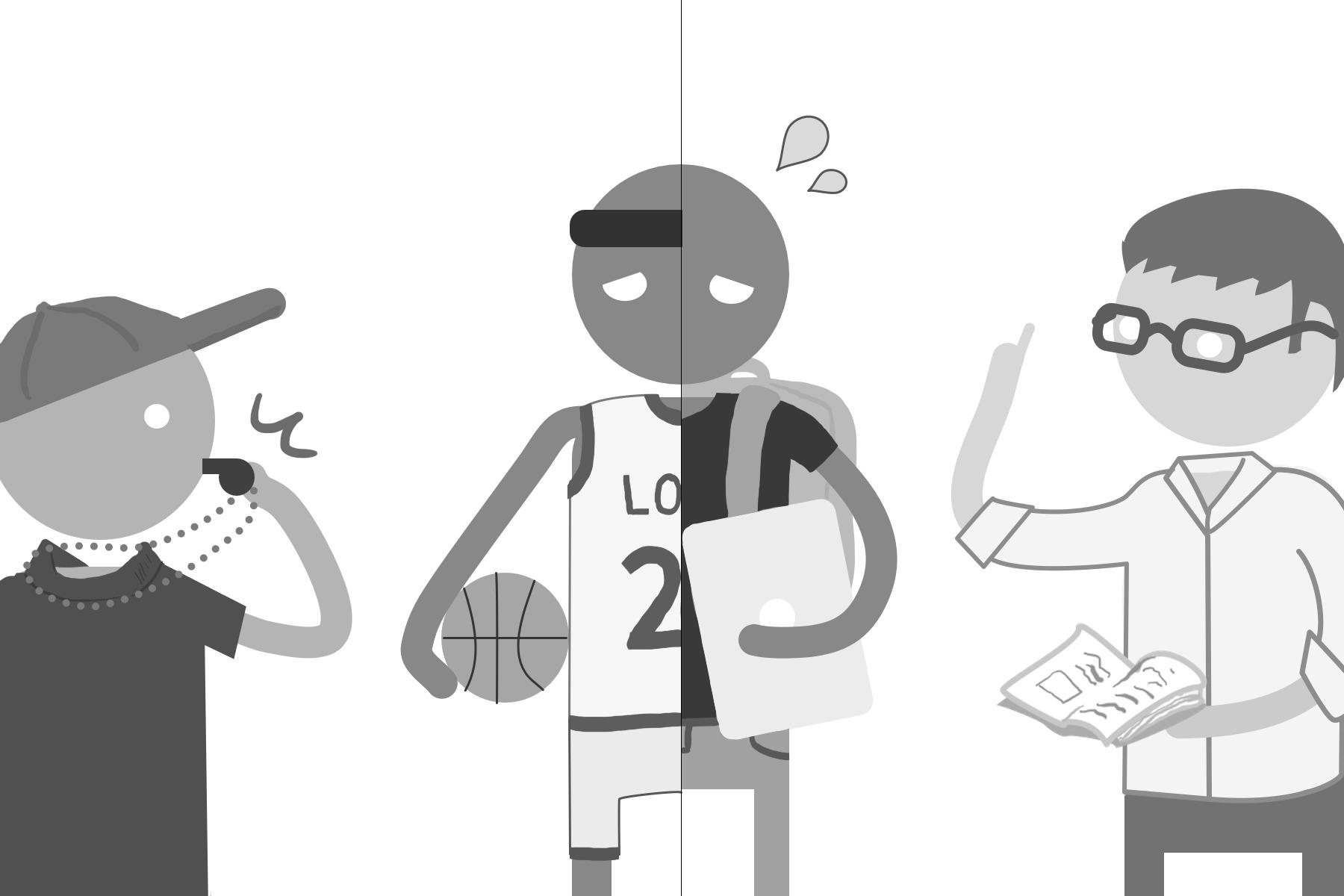Academics or athletics: Why it shouldn’t be a choice
October 28, 2015
Many students look forward to participating in a sport during high school, as they can be an important break from the pressures and responsibilities surrounding academics. Sports are gateways to making friends, staying in shape and representing how one’s interests expand outside of school.
High schools advocate for student-athletes, desiring their sports teams to be the best possible, full of athletes who will represent the school well. In addition, students also encourage each other to join. Sports give them the chance to show their school spirit and athletic ability.
Unfortunately, the task of balancing school and sports often takes a severe toll on students. Those wanting to participate in sports should not face the severe consequences that currently hinder our scholar-athletes.
One problem students commonly face is determining what they must prioritize. It is natural for teachers and coaches to feel that their activities should take priority in a student’s life.
“On several occasions I’ve heard coaches explicitly state that practice was priority over homework,” cross country runner junior Katia Gibson said. “[This] directly contradicts the athletic contract, which says that school comes first.”
The reality is that many students end up with several classes as well as a sport all vying to be treated as their first concern. Clearly, fulfilling all of these expectations is impossible.
“Although we as students have to willingly make sacrifices to participate in sports, that doesn’t mean sports can rule our lives,” Katia said. “Both teachers and coaches need to recognize we’re equal parts student and athlete.”
Many students who are serious about their coursework may find difficulty placing academics in front of sports. Sports are treated as classes, and missing practice or arriving late may result in a lower grade. The grades students receive for sports affect their cumulative GPA, which may discourage potential athletes.
The current expectation is that students must take the initiative to compromise with their teachers. With sports games occasionally taking place during class, working out when and how a student will make up work is necessary. However, this method actually adds to both student and teacher stress instead of providing relief.
Students may not want to interrupt their teacher’s day in order to ask for extensions or help. The student may feel intimidated or unsure that their suggestion will be accepted. When a student does successfully work out a deal with their teacher, they must keep careful track of how their responsibilities differ from the rest of the class.
Since there is no systematic way for students and teachers to compromise, the organization required by both parties is increased. Conflicts may occur if the teacher does not remember working out the agreement, which students rely on to attend their sports. In the end, extensions meant to reduce stress may add to it. To help both students and themselves, teachers might consider setting up a document online where they keep track of compromises they have made.
Sports, a serious time commitment, usually take around two hours after school. While this obviously results in less time to complete homework, many fail to take into account the exhaustion sports cause. Students spend energy focusing throughout the school day and then push themselves physically during sports. When they come home later in the evening, they are more tired while having less time to complete their work. Teachers should take this into consideration when they are approached by an overwhelmed student seeking help or extra time.
“The expectation that we should go to school for seven to eight hours every day with an additional two hours for sports then go home with three to four hours of homework is too much,” field hockey player junior Bella Baynard said. “There’s not enough time in the day to balance everything going on and that’s where stress comes from.”
There is no definite solution to this problem. Teachers and coaches should be aware of the challenges students participating in sports face. Students should not be penalized for occasionally missing practices; this provides students with a chance to catch up on work and sleep, which is ultimately better for both their academic and athletic performance. As long as students explain their situation, they should be allowed to miss practice once every few without being pressured by their coach to attend.
There are many students struggling to balance both school and sports; we should let them catch their breath.

